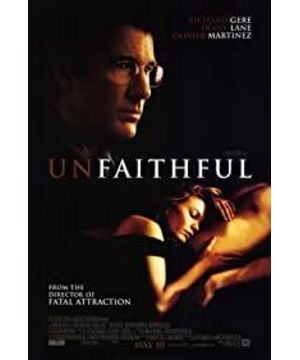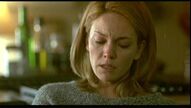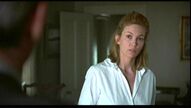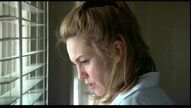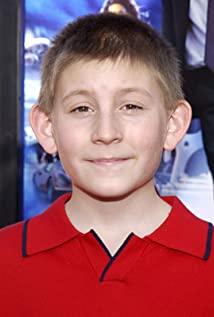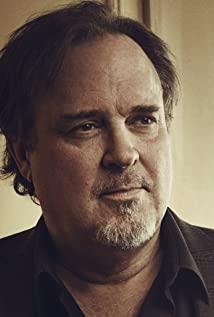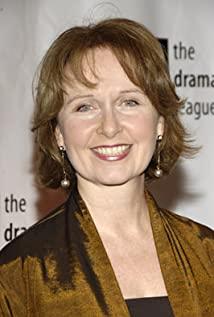His wife, Connie, has a capable and handsome husband and a lovely son. She works as a housewife and teaches each other at home, which is in full compliance with the society's requirements for a good woman. However, it was such a seemingly enviable woman who finally walked on a so-called path that was despised by the world.
At the beginning of the film, Connie was on the subway, and everyone else was looking at the newspaper, but she was the only one who gasped. Maybe it was because she was tired from running to the subway station, but why can't it be explained that her life is overwhelming? Every day is a monotonous and boring life, facing a husband who has a little humor but puts work first (at the beginning, in Connie’s view, the husband did not value her, and he regarded work and children more importantly. Connie couldn't get the feeling of being valued and watched there), Connie was tired and tired. She needs passion. The strong wind blowing on the street contrasted sharply with the calm inside the house. That hard-to-follow gale is the exciting life she wants in her heart. However, the wind blew her skirt, revealing slender sexy legs and the back of the lover’s room for the first time. Paul’s staring at her beautiful legs who were talking on the phone all hinted that this turbulent affair was Because of sex. In the beginning, Connie was indeed a model wife under the constraints of social ethics and morality. When the gale caused the possibility of extramarital affair (a life she actually wanted), she fell into a deep contradiction. When Paul asked her to go upstairs, a taxi passed by. She hesitated, but of course she didn’t stop it; however, she didn’t make up her mind. On the stairs, she walked slowly and hesitated; she also revealed when she entered the room. With a nervous and contradictory look (in the film, Paul turns her right and she turns left; she wants to leave the house but heads towards the bedroom). However, this time she struggled, and her social ethics and morality triumphed. She left and returned home, she calmly talked about Paul to her husband. Then I wanted to have sex with my husband, which is a very critical plot. It implies that Connie has always been sexually depressed, and feels that if she can get sexual satisfaction from her husband, it can be that she has forgotten her desire for Paul; and the needs of her son interrupt this process, which also explains why Connie is in There is no sexual satisfaction in marriage.
There is a detail in the film that is worth pondering: Connie asked her son to spit out the gum, but after sending her son away from home, she ate the thing that was spit out. Here, the director seems to want to tell the audience that Connie educates her son in accordance with social ethics and tells him what to do, but she subconsciously desires to break the rules or ignore the rules. So, after being unsatisfied with her husband, Connie hesitated and picked up the phone. However, her superego plunged her into an inner struggle: should she be a good wife in accordance with ethics, ignoring the depression in her heart, or breaking this ethics to seek her own happiness? But after hesitating, she finally agreed. Hanging up the phone, a self-blame expression naturally emerged. After going to Paul's house this time, Connie bought clothes for her husband, which was a compensation in her heart. However, seeing pictures of the family and myself on my husband's desk became even more guilty.
However, guilt is guilt after all. The line of defense created by social ethics and morals that isolates all temptations has opened a small mouth, and the flood of desire can no longer be suppressed. Choose to go for the third time, for my own happiness. She understood what was going to happen and refused. However, because she didn't take her coat away, it was like fate, everything happened (in fact, maybe this is a trick by her id to deceive the superego). Thinking back to the process of making love on the way back. Although she cried during sex, Paul undoubtedly gave her husband a pleasure that her husband had never given before. Physically satisfying, intensely stimulating sex, on the train, she touched herself while thinking about it. Amidst tears of regret and joyful smiles, the audience understood that she had decided to start rebelling against the so-called social standards for his wife, and began to The husband's unfaithfulness also began to be unfaithful to the ethics and morals of the entire patriarchal society. And the scene where she was in the subway restroom, the tangled paper and the sloshing water, was the externalization of her heart.
And after this satisfaction and happiness, Connie's heart began to torment deeper. In the study, Connie turned off the light when she left the house, categorically forgetting the husband with whom she had spoken; in the bathtub, Connie refused her husband’s request for sex; in the living room, Connie returned to be with Paul Home is late and crying. With Paul, Connie got a socially intolerable stimulus and a romantic life, physical pleasure; when she was with him, happiness was her own, she had both physical and psychological satisfaction, and she lived completely for herself . However, in the face of a husband, all happiness belongs to the family, everything is to live for the family, for a relationship. On the surface, she just made a choice between two men and two lives. However, in reality, she had to choose whether to obey or rebel against this patriarchal society.
On a rainy day, Connie cried and drove back after finishing her shopping. However, after the struggle, she drove the car across the railings, indicating that she had decided to make a choice. Her actions seemed to compromise social ethics. She went to see Paul but found his true face in the car, so she had sex for the last time and split. Then, as if nothing happened. However, I think she actually rebelled. She finally gained the freedom and power to control her own desires. Having sex with Paul (the most hurtful and insulting way of sex for women), and then breaking up, she is not actually under ethical pressure, but is the management of her own desires, which is her voluntary.
For Connie, she is not infidelity to her husband, but infidelity to the patriarchal society.
And Paul and Edward, they are not just loyalists. Paul, with his excellent appearance and inner charm, treats everything as a game. He knows that he is a lover, and he doesn't care about hurting others. He has many women at the same time, playing with their emotions and bodies. Edward, he is a gentleman and everything seems to be perfect. However, after he vows to God to trust his wife at the wedding, he still asks his friends to follow his wife secretly, not to say the vows. This has violated Connie’s privacy. Quan; and after seeing Paul later, this gentleman who had been restraining his gaffe still committed an irreparable crime. They all seem to be victims, but they also committed infidelity. They are all unfaithful to social ethics.
It rained heavily the day Connie made the decision and Edward carried the body to see her son's performance. The rain washes away the past and symbolizes the beginning of a new and beautiful future. I have to say that these two ironies are very subtle.
And that murder weapon. The beautiful snowball Windy City is a dream society that is a standard model (fantasy) under the basic ethics of this patriarchal society, and it criminally ends the life of a young man, a peaceful life for a family, this is undoubtedly The most powerful evidence of the theme of the film. The so-called "infidelity" is definitely not the betrayal of the wife to the husband, but the rebellion of the three masters against traditional society.
However, the director is kind and cruel after all, and he gave a seemingly happy ending. Under such a turmoil, homes in the real sense appeared. However, they stopped at the door of the police station. The audience could not know how long such homes could last in traditional society.
(December 13, 2009, Introduction to Art Assignment)
View more about Unfaithful reviews


